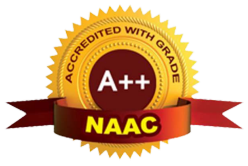Introductory Workshop in Astronomy and Astrophysics Organised by NECRD, IGNOU, Guwahati (15—17 December 2010).
Introductory Workshop in Astronomy and Astrophysics
(December 15 - 17, 2010)
NECRD, IGNOU, Guwahati, will be hosting an IUCAA sponsored Introductory workshop in Astronomy and Astrophysics during 15—17 December 2010. This workshop is intended for young researchers (final semester post-graduate students, research scholars, and college / University teachers) who are working in the area of astronomy and astrophysics. The total number of participants will be restricted to 25.
To participate in this workshop, please send your resume by post or e-mail along with a covering letter to the address given below before October 20, 2010. Ph.D. students, PDFs and young faculty members interested in starting their research career in observational astronomy are particularly encouraged to apply. They should arrange to send a recommendation letter from their guide or head of the department along with their application. Participants will be provided free hospitality and accommodation during this workshop. Limited travel support will be available. Those who require travel support should mention that in their applications.
Contact address:
Dr. Anil Ch. Borah
Deputy Director
North East Centre for Research and Development
Indira Gandhi National Open University
Near Nayantara Super Market
H/No. 2, 6 mile
Guwahati 781 022, Assam
E-mail: anilchborah@ignou.ac.in / anilchborah@yahoo.com
Tel-Fax: (0361) 2335470.
Introductory Workshop on Astronomy and Astrophysics
To be organised by North East Centre for Research and Development (NECRD), IGNOU, in Collaboration with Inter University Centre for Astronomy and Astrophysics (IUCAA), Pune
Objectives
Indira Gandhi National Open University (IGNOU) is a University of repute for open learning and distance education. The university has also started many courses in face to face mode in recent times. It has revolutionized the idea of open and continuous learning in India has contributed significantly to the development of higher education in the country. The University follows a learner-centric approach and has successfully adopted a policy of openness and flexibility in terms of relaxed entry qualifications, period required for completion of a programme and place of study. Among its many new initiatives, IGNOU has recently started the North East Centre for Research and Development (NECRD) at Guwahati for long term Human Resource Development in North-East India. The NECRD aims at enhancing and supplementing quality education with need-specific research & development by utilizing the locally available resources and qualified man-power for creating a conducive environment for research in north-east India.
In view of above NECRD proposes an Introductory Workshop on Astronomy and Astrophysics to expose and motivate students and young researchers (final semester PG students/research scholars/college teachers) towards this field so that the upcoming young generation in North East India can efficiently use the next generation space and ground based telescope facilities such as Herschel, JWST, ALMA, VISTA and SCUBA/JCMT etc.
Astrophysics is one of the old and exciting branches of science and has relevance in all time. It does not only provide job opportunity but is also very interesting because of its very aim of explaining the cause of creation and sustainability of the universe. Our methods of investigating the universe have changed in the last decade because of new observational facilities and parallel theoretical developments. With advances in infrared and (sub) millimeter detector technology, new wide field cameras have been developed that allow mapping of large areas of the sky in reasonable observation times. Recent advancement in technology and subsequent new challenging observations will be able to answer some of the unresolved issues in the field of astronomy and astrophysics. Depth and coverage of multiple wavelengths is expected to be increased with the help of the current and new facilities such as WFCAM on UKIRT, UKIDSS, ESO-VISTA (infrared), SCUBA2, HARP, 4MASS (radio) on the ground and the space missions such as AKARI, Spitzer Space Telescope, Herschel (launched in mid May 2009) and Planck. On the other hand, the upcoming facilities such as ALMA in the millimeter wavelengths and the JWST in the infrared will provide angular resolution at milli-arcsecond levels to probe distant objects at AU scales. SPICA in the mid-/far-infrared, to be launched in 2017, will fill the gap in the coverage of wavelength between JWST and Herschel. With these upcoming facilities it will be possible to observe a significant area of star forming regions in a short time scale. Consequently, this will provide a chance to address the central issues in star formation studies. The all sky samples covering large fraction of the sky will provide an opportunity to carry out unbiased statistical studies of young stellar properties, the distribution of sub-stellar objects, the structure of molecular clouds, initial mass function and mechanism of massive star formation.
The purpose of the workshop is to expose and motivate post graduate students, young researchers and college teachers towards astronomy and Astrophysics and promote the subject at the graduate studies level so that the upcoming young generation in North East India can efficiently use the next generation space and ground based telescope facilities such as Herschel, JWST, ALMA, VISTA and SCUBA/JCMT.
Workshop Topics
DAY-I
Introduction: Astronomy and Astrophysics
DAY-II
Recent Developments in Astronomy and Astrophysics
DAY-III
Star Formation



